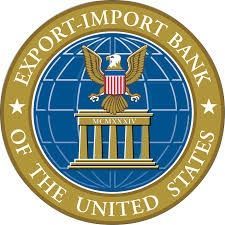U.S. Import-Export Bank: Officials Debate Its Importance For Africa-U.S. Trade

Whether to maintain the 80-year-old U.S. Export-Import Bank has been a topic of heated discussion for American politicians this summer, and now officials have added yet another angle to the debate: the Africa issue.
The U.S.'s official export credit agency, which provides financial support to foreign companies purchasing U.S. goods, has become a dividing line between pro-business supporters who say it’s good for American jobs and tea party groups who say it perpetuates crony capitalism.
At a recent press conference, the agency’s supporters, which include President Obama and former President Bill Clinton, argued that the Ex-Im will not only help boost American trade with Africa but also give U.S. businesses a foothold in one of the world’s fastest-growing economic regions, where competitors such as China have already taken a strong lead.
“I would be remiss if I did not add that House Republicans can help by reauthorizing the Export-Import Bank,” the president said during his speech at the event. “That is the right thing to do.”
In response, critics such as Rep. Jeb Hensarlin, R-Texas, argued the bank is less important than many people perceive, and called Obama’s support an “international arms race to the bottom” that supports only Fortune 500 companies, with no benefits to smaller businesses at home or abroad, according to a report in the Washington Post.
“Private-sector investment in Africa should be based on market conditions, investment climate and profit potential, not subsidies from the U.S. taxpayer in the form of Ex-Im financing,” Brett Schaefer, an international regulatory affairs researcher at the Heritage Foundation, told IBTimes.
“The American taxpayer is the most disadvantaged, as they hold the risk in these types of arrangements,” he said.
Though sub-Saharan Africa receives roughly 1 percent of U.S. exports, the Ex-Im bank does relatively more in the region than any other. In 2013, almost 5 percent of its portfolio supported U.S. exports to sub-Saharan Africa, the bank reported. Over the past 10 months, the institution has issued $1.7 billion in financial support for similar projects.
Last year, projects included a $155 million loan to the Republic of Ghana to finance a Miami-based firm’s construction of a hospital, a $16 million loan to the city of Lagos in Nigeria to buy 32 fire trucks from an Illinois company, and a $108 million loan guarantee to a South African company to buy 53 locomotive kits from General Electric. The bank estimates these projects supported a combined 250,000 American jobs.
But beyond the local benefits, supporters say the bank helps U.S. companies compete with their intimidating competitors.
“If the Ex-Im Bank ceased to exist, it is possible that some projects couldn’t proceed or would be delayed due to unavailability of financing or similar constraints, but what is more likely is that one of the many big players outside the U.S. would be the partner of choice instead,” wrote Brookings Africa economist Amadou Sy in a blog post.
China for example, is responsible for financing just under a third of all new African infrastructure projects. In November Chinese officials pledged $1 trillion worth of financing to African countries over the next 12 years.
“Does the U.S. want to have the capability to be a partner of choice to emerging markets like those in Africa, home to some of the fastest-growing economies in the world, or does it want to stand on the sidelines while the continent continues to rise without it?”
The Ex-Im Bank’s charter is set to expire at the end of September, and requires that U.S. lawmakers vote to reauthorize in order to keep it running.
© Copyright IBTimes 2024. All rights reserved.





















